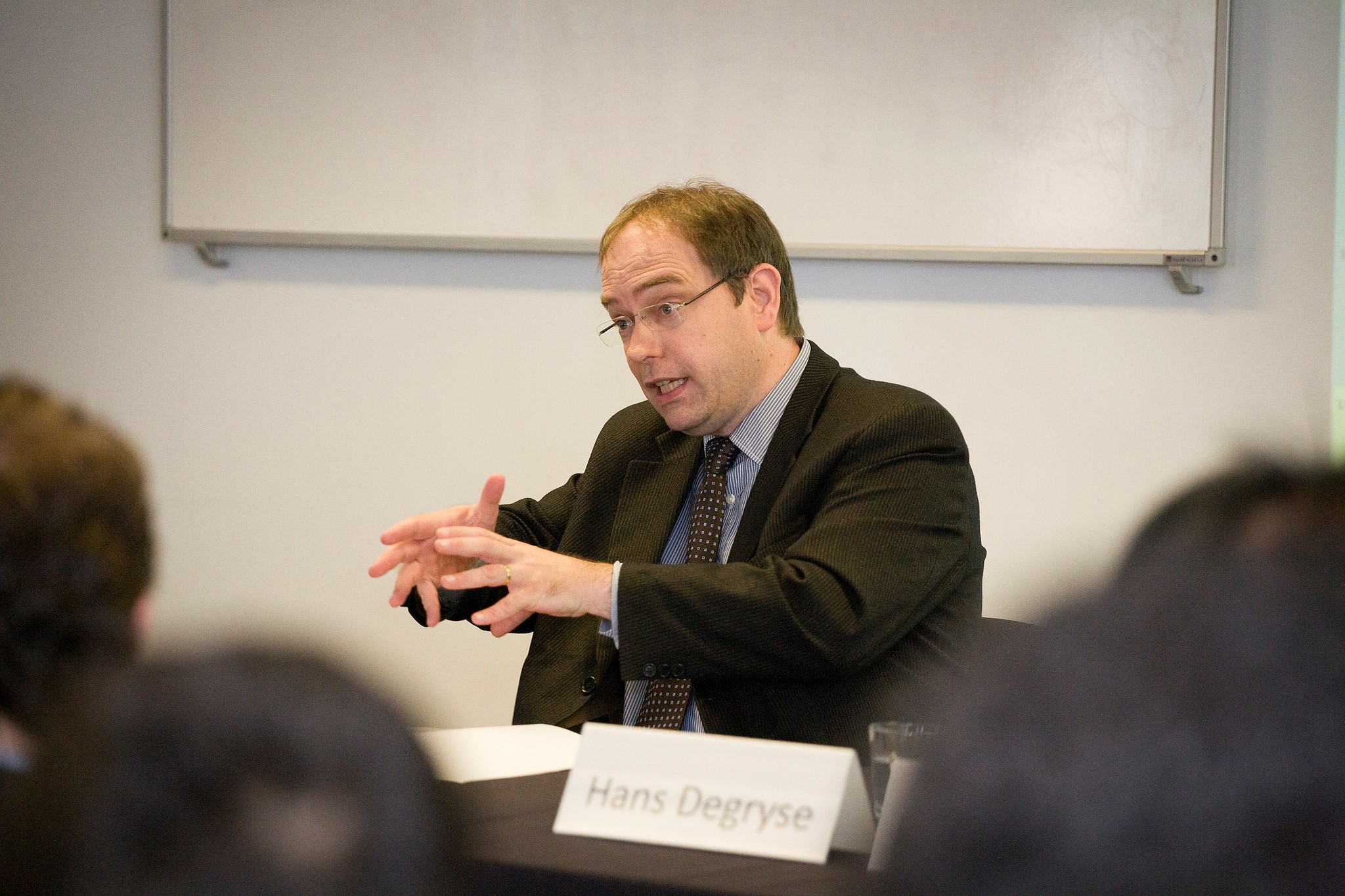Financial System Adaptability and Resilience
Financial systems differ across countries and tend to evolve slowly over time. Their structure is typically stable, but their resilience is often tested. A well-functioning financial system is vital for economic development, as it ensures that capital flows to the most productive and valuable investment opportunities. However, systemic vulnerabilities can have far-reaching consequences. For example, the 2007–08 global financial crisis emerged from within the financial sector itself when complex financial products fuelled a credit bubble in the U.S. housing market, threatening global economic stability when the bubble burst. That event led to extensive policy and regulatory reforms to strengthen financial system resilience.
Financial systems continue to face significant challenges. External shocks like the COVID-19 pandemic, the climate crisis, the green economic transition, and the energy crisis driven by geopolitical conflict all underscore the importance of financial systems that can absorb shocks and adapt to changing economic conditions. Motivated by these pressing issues, we investigate how financial systems respond to crises, which institutions and policies improve resilience, and the role of finance systems' setup in broader economic transformations. We use diverse data sources, including bank and firm-level data, regulatory reports, and house price and election data, to inform evidence-based policy.
Research Cluster
Financial Resilience and RegulationYour contact

- Department Financial Markets
EXTERNAL FUNDING
08.2022 ‐ 07.2025
OVERHANG: Debt overhang and green investments - the role of banks in climate-friendly management of emission-intensive fixed assets
The collaborative project “Debt Overhang and Green Investments” (OVERHANG) aims to investigate the role of banks in the climate-friendly management of emission-intensive fixed assets. This will identify policy-relevant insights on financial regulation, government-controlled lending and financial stability, as well as raise awareness among indebted stakeholders.
01.2015 ‐ 12.2019
Interactions between Bank-specific Risk and Macroeconomic Performance
07.2016 ‐ 12.2018
Relationship Lenders and Unorthodox Monetary Policy: Investment, Employment, and Resource Reallocation Effects
Leibniz Association
We combine a number of unique and proprietary data sources to measure the impact of relationship lenders and unconventional monetary policy during and after the European sovereign debt crisis on the real economy. Establishing systematic links between different research data centers (Forschungsdatenzentren, FDZ) and central banks with detailed micro-level information on both financial and real activity is the stand-alone proposition of our proposal. The main objective is to permit the identification of causal effects, or their absence, regarding which policies were conducive to mitigate financial shocks and stimulate real economic activities, such as employment, investment, or the closure of plants.
Refereed Publications
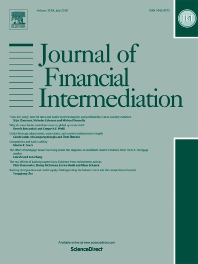
The Disciplining Effect of Supervisory Scrutiny in the EU-wide Stress Test
in: Journal of Financial Intermediation, January 2023
Abstract
Relying on confidential supervisory data related to the 2016 EU-wide stress test, this paper presents novel empirical evidence that supervisory scrutiny associated to stress testing has a disciplining effect on bank risk. We find that banks that participated in the 2016 EU-wide stress test subsequently reduced their credit risk relative to banks that were not part of this exercise. Relying on new metrics for supervisory scrutiny that measure the quantity, potential impact, and duration of interactions between banks and supervisors during the stress test, we find that the disciplining effect is stronger for banks subject to more intrusive supervisory scrutiny during the exercise. We also find that a strong risk management culture is a prerequisite for the supervisory scrutiny to be effective. Finally, we show that a similar disciplining effect is not exerted neither by higher capital charges nor by more transparency and related market discipline induced by the stress test.

Corporate Culture and Firm Value: Evidence from Crisis
in: Journal of Banking and Finance, January 2023
Abstract
Based on the Competing Values Framework (CVF), we score 10-K text to measure company culture in four types (collaborative, controlling, competitive, and creative) and examine its role in firm stability. We find that firms with higher controlling culture fared significantly better during the 2008–09 crisis. Firms with stronger controlling culture experienced fewer layoffs, less negative asset growth, greater debt issuance, and increased access to credit-line facilities during the crisis. The positive effect of the controlling culture is stronger among the financially-constrained firms. Overall, the controlling culture improves firm stability through greater support from capital providers.
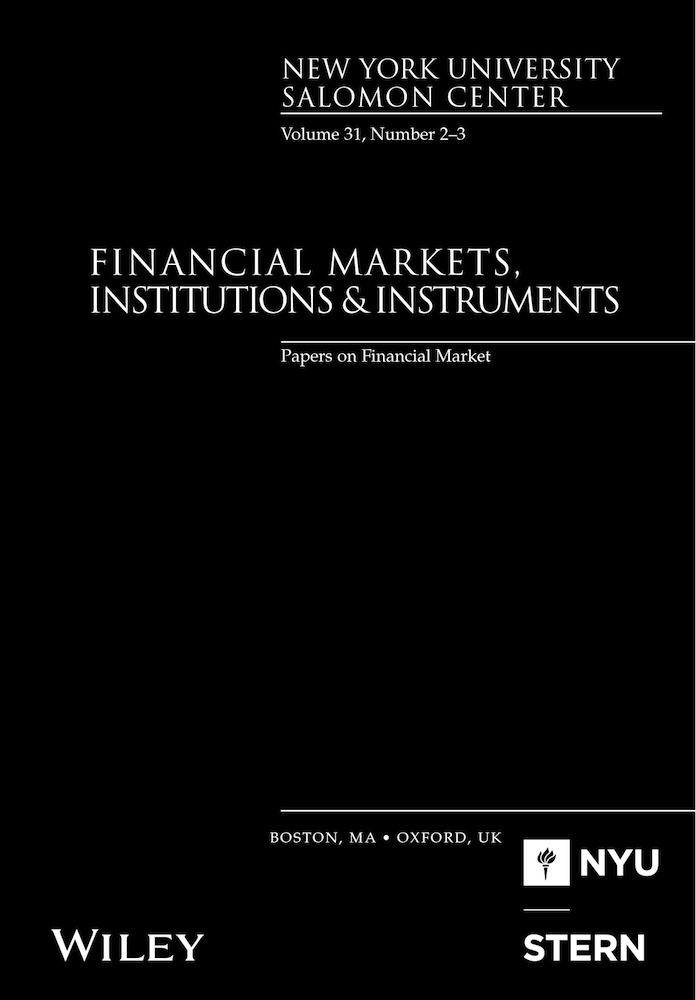
Environmental Reputational Risk, Negative Media Attention and Financial Performance
in: Financial Markets, Institutions and Instruments, No. 4, 2022
Abstract
Tracing negative media attention, this paper investigates the effect of reputational risk on firm value. Decomposing reputational damage into environmental, social and corporate-governance dimensions, it reports that environmental reputational risk has the most significant negative effect on price earnings, i.e., firms exposed to environmental risk are likely to be priced at a discount or charged a higher risk premium when discounting future earnings.

The Impact of Financial Transaction Taxes on Stock Markets: Short-Run Effects, Long-Run Effects, and Reallocation of Trading Activity
in: National Tax Journal, No. 3, 2022
Abstract
We investigate the French 2012 financial transaction tax (FTT) and find robust evidence for anticipation effects before the implementation date. Controlling for short-run effects, we only find weak evidence for a long-run reduction in trading activity. Thus, the main impact of the French FTT on trading activity is short-run. In line with liquidity clientele effects, we find a more potent effect for low-liquidity stocks and a reallocation of trading to high-liquidity stocks from the Supplemental Liquidity Provider (SLP) program. Finally, we find weak evidence for a persistent volatility reduction but no indication of a significant FTT impact on price efficiency.

Productivity, Managers’ Social Connections and the Financial Crisis
in: Journal of Banking and Finance, August 2022
Abstract
This paper investigates whether managers’ personal connections help corporate productivity to recover after a negative economic shock. Leveraging the heterogeneity in the severity of the financial crisis across different sectors, the paper reports that (i) the financial crisis had a negative effect on within-firm productivity, (ii) the effect was long-lasting and persistent, supporting a productivity-hysteresis hypothesis, and (iii) managers’ personal connections allowed corporations to recover from this productivity slowdown. Among the possible mechanisms, we show that connected managers operating in affected sectors foster productivity recovery through higher input cost efficiency and better access to the credit market, as well as more efficient use of labour and capital.
Working Papers

Ecological Preferences and the carbon Intensity of Corporate Investment
in: IWH Discussion Papers, No. 2, 2025
Abstract
<p>Lowering carbon intensity in manufacturing is necessary to transform current production technologies. We test if local agents’ preferences, revealed by vote shares for the Green party during local elections in Germany, relate to the carbon intensity of investments in production technologies. Our sample comprises all investment choices made by manufacturing establishments from 2005-2017. Our results suggest that ecological preferences correlate with significantly fewer carbon-intensive investment projects while investments stimulating growth and reducing carbon emissions increase by 14 percentage points. Both results are more distinct in federal states where the Green Party enjoys political power and local ecological preferences are high.</p>
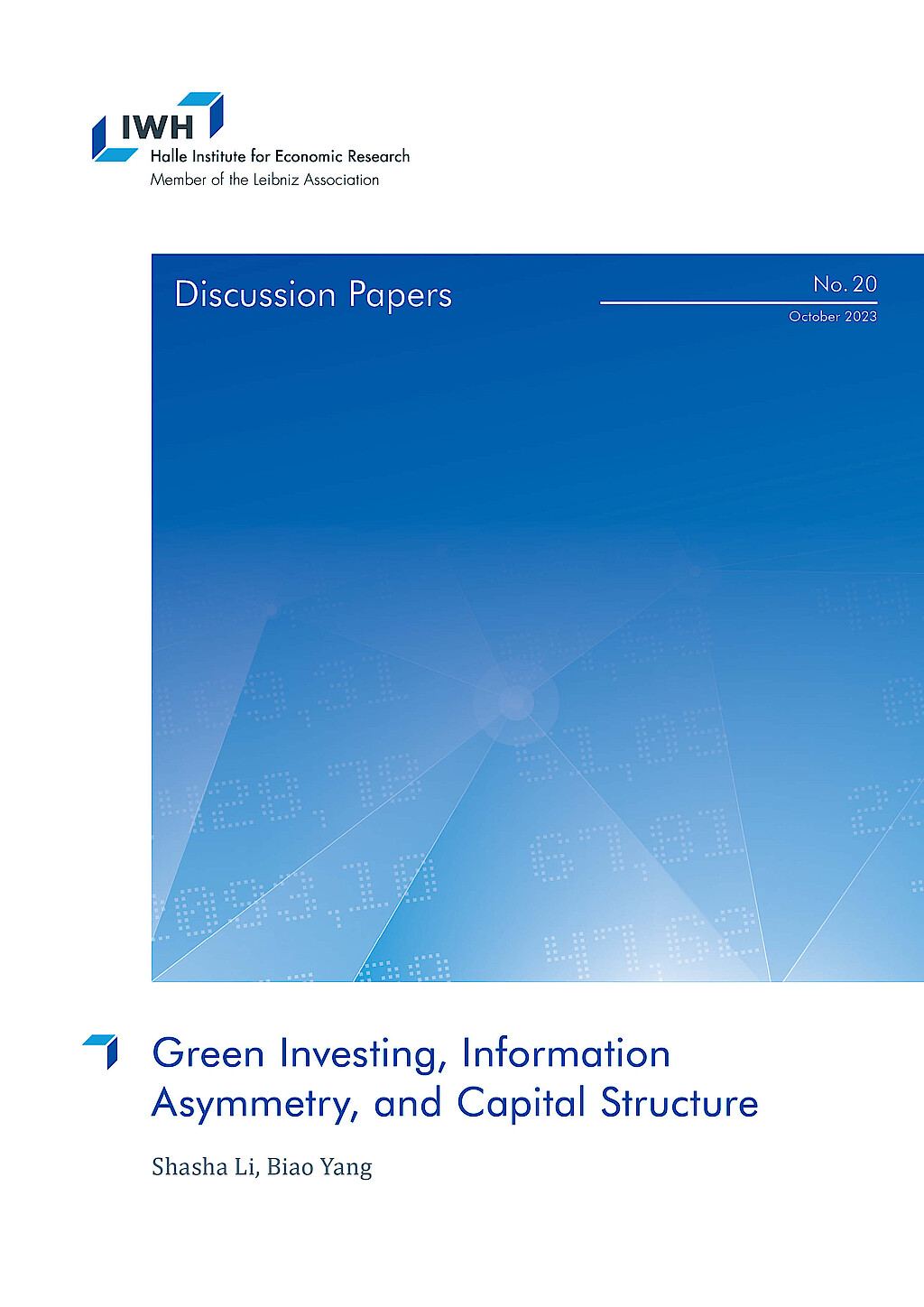
Green Investing, Information Asymmetry, and Capital Structure
in: IWH Discussion Papers, No. 20, 2023
Abstract
We investigate how optimal attention allocation of green-motivated investors changes information asymmetry in financial markets and thus affects firms‘ financing costs. To guide our empirical analysis, we propose a model where investors with heterogeneous green preferences endogenously allocate limited attention to learn market-level or firm-specific fundamental shocks. We find that a higher fraction of green investors in the market leads to higher aggregate attention to green firms. This reduces the information asymmetry of green firms, leading to higher price informativeness and lower leverage. Moreover, the information asymmetry of brown firms and the market increases with the share of green investors. Therefore, greater green attention is associated with less market efficiency. We provide empirical evidence to support our model predictions using U.S. data. Our paper shows how the growing demand for sustainable investing shifts investors‘ attention and benefits eco-friendly firms.
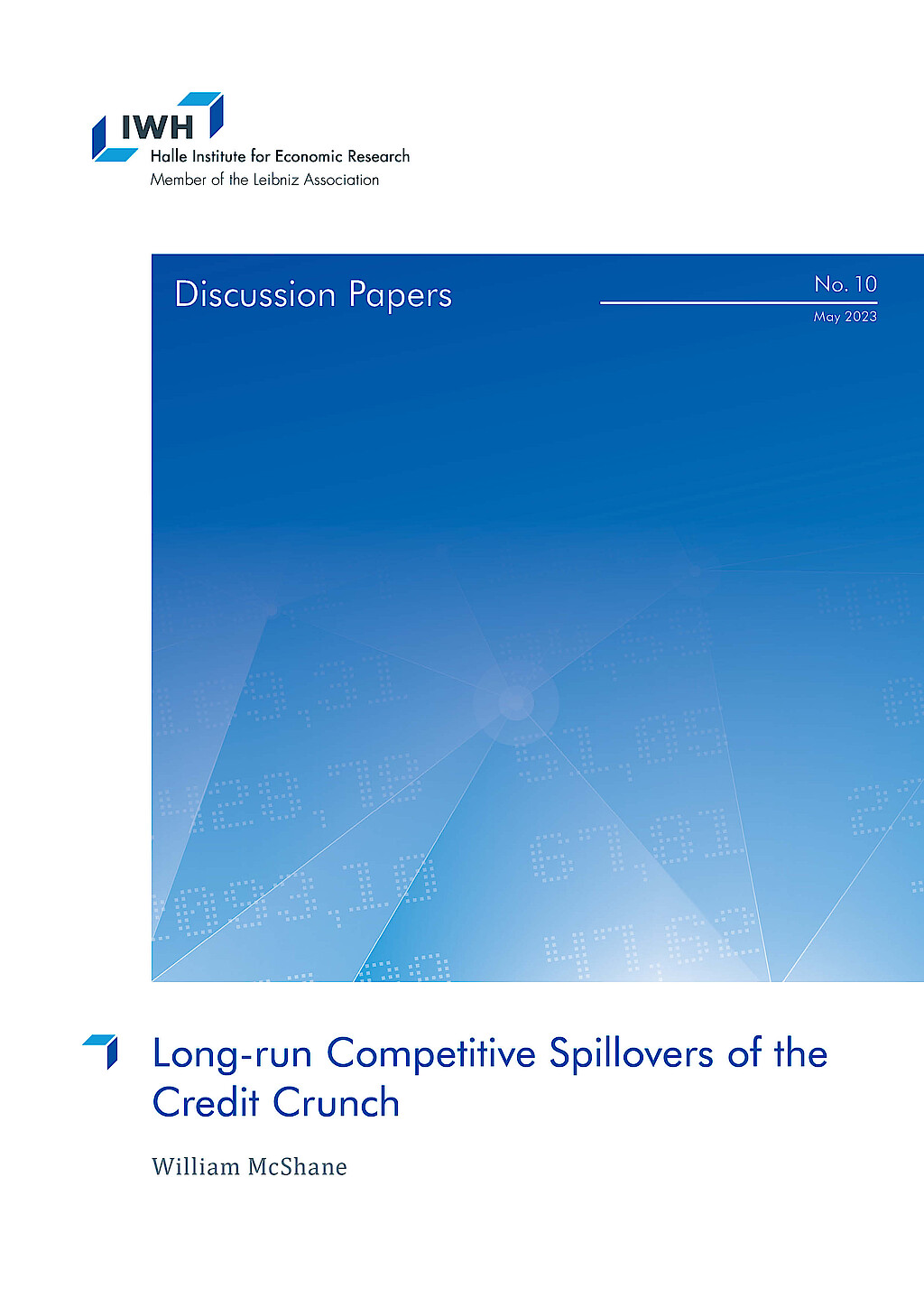
Long-run Competitive Spillovers of the Credit Crunch
in: IWH Discussion Papers, No. 10, 2023
Abstract
Competition in the U.S. appears to have declined. One contributing factor may have been heterogeneity in the availability of credit during the financial crisis. I examine the impact of product market peer credit constraints on long-run competitive outcomes and behavior among non-financial firms. I use measures of lender exposure to the financial crisis to create a plausibly exogenous instrument for product market credit availability. I find that credit constraints of product market peers positively predict growth in sales, market share, profitability, and markups. This is consistent with the notion that firms gained at the expense of their credit constrained peers. The relationship is robust to accounting for other sources of inter-firm spillovers, namely credit access of technology network and supply chain peers. Further, I find evidence of strategic investment, i.e. the idea that firms increase investment in response to peer credit constraints to commit to deter entry mobility. This behavior may explain why temporary heterogeneity in the availability of credit appears to have resulted in a persistent redistribution of output across firms.
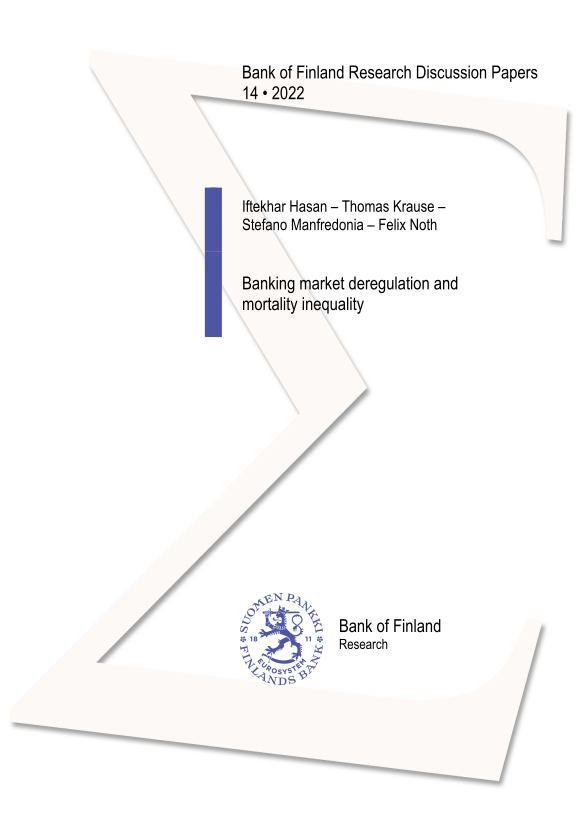
Banking Market Deregulation and Mortality Inequality
in: Bank of Finland Research Discussion Papers, No. 14, 2022
Abstract
This paper shows that local banking market conditions affect mortality rates in the United States. Exploiting the staggered relaxation of branching restrictions in the 1990s across states, we find that banking deregulation decreases local mortality rates. This effect is driven by a decrease in the mortality rate of black residents, implying a decrease in the black-white mortality gap. We further analyze the role of mortgage markets as a transmitter between banking deregulation and mortality and show that households' easier access to finance explains mortality dynamics. We do not find any evidence that our results can be explained by improved labor outcomes.
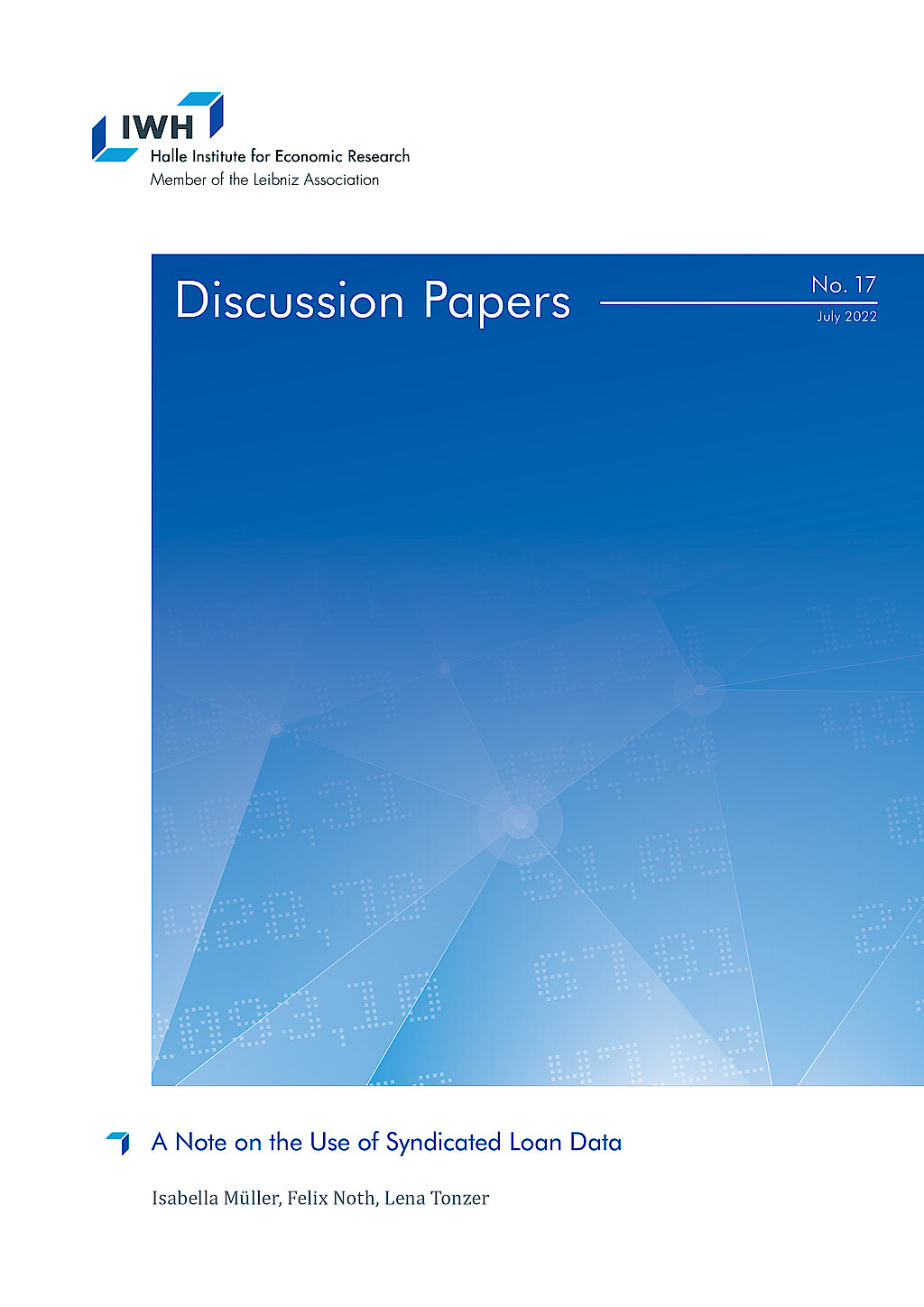
A Note on the Use of Syndicated Loan Data
in: IWH Discussion Papers, No. 17, 2022
Abstract
<p>Syndicated loan data provided by DealScan is an essential input in banking research. This data is rich enough to answer urging questions on bank lending, e.g., in the presence of financial shocks or climate change. However, many data options raise the question of how to choose the estimation sample. We employ a standard regression framework analyzing bank lending during the financial crisis of 2007/08 to study how conventional but varying usages of DealScan affect the estimates. The key finding is that the direction of coefficients remains relatively robust. However, statistical significance depends on the data and sampling choice and we provide guidelines for applied research.</p>



